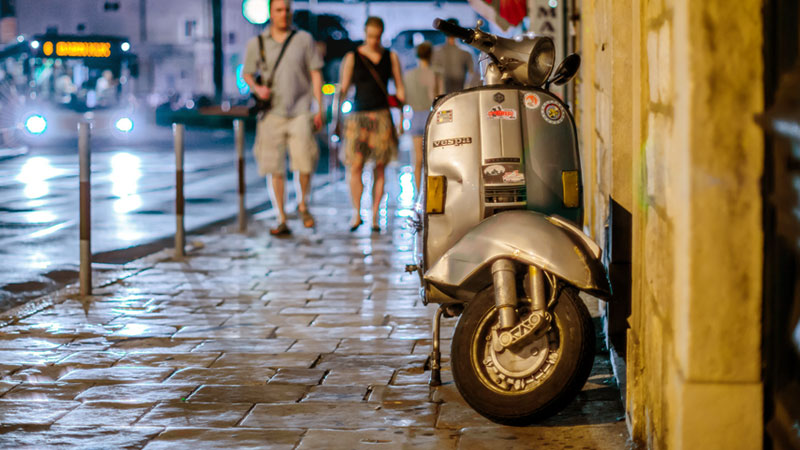
Planned Biden-Erdogan meeting at White House postponed, Turkish official says
ANKARA — President Recep Tayyip Erdogan’s planned meeting with U.S. President Joe Biden, set for May 9 at the White House, has been postponed because of changes in the Turkish leader’s schedule, a Turkish official said on Friday.
A new date will soon be set, the official said, requesting anonymity.
The White House had not formally announced the visit, but a U.S. official told Reuters in late March that the White House had offered, and Ankara had accepted, May 9 for the meeting.
…
Russian women face violence from Ukraine veterans
Warsaw, Poland — Olga drew her index finger abruptly across her neck as she recounted the threats her husband leveled at her after he returned to Russia, wounded from fighting in Ukraine.
“I’m going to cut your head and hands off and beat you up. I’ll burn you in acid,” he threatened her, she said.
Even before her husband went off to fight in Ukraine, he was a violent alcoholic, Olga — not her real name — told AFP.
When he returned home seven months later, he was even worse. And now he was a war hero, endowed with a sense of impunity and moral righteousness.
“He became even more radical,” she said. “He said that he was untouchable, that nothing could happen to him.”
Domestic violence
Long before Russia invaded Ukraine, rights groups had sounded the alarm over the country’s woeful record on protecting women from domestic violence.
In 2017, lawmakers — with the blessing of the Orthodox Church — reduced penalties for Russians convicted of beating family members.
And the Kremlin under Vladimir Putin has in recent years argued that abuse within families should be resolved by families, not law enforcement.
With the war in Ukraine, campaigners say that an already widespread problem could now be getting even worse.
While there are no publicly available figures on the scope of violence perpetrated by veterans, campaigners have identified a slew of survivors.
Local media, too, is awash with reports of violent crimes committed by ex-soldiers.
AFP spoke to two Russian women about the violence they had suffered from veterans of the war in Ukraine. Both requested anonymity for fear of reprisals.
Their testimonies are rare, given how the Kremlin has sought to exalt veterans fighting in a war it paints as existential.
Moscow has brought in new laws to criminalize criticism of the Russian army and its soldiers.
‘Ice-cold’ eyes
Olga’s life in her isolated Russian town had long been marked by violence.
Her husband was an alcoholic who regularly raped and beat her, stole money and monitored her every social interaction, she said.
Over and over, he would beg for forgiveness after an altercation, only to become violent again, she said.
So, when he volunteered for the army in October 2022, Olga hoped that proximity to “death and tears” might calm him down and sober him up.
Her hopes were dashed. He returned from the front earlier than expected to recover from a shrapnel wound.
“The next evening, I had a nervous breakdown,” she said.
“He was totally sober, but his eyes were shining. His eyes were ice-cold. He started insulting me,” she recalled.
Tensions were building at home that evening and Olga called an ambulance for refuge, pre-empting the moment he would raise his hand at her.
“If you let me out of this vehicle, he will kill me,” she told the ambulance crew.
AFP independently reviewed threats Olga received by text message, as well as reports compiled by the rights advocacy group Consortium that support the women’s testimonies.
‘Dreams of justice’
The police took a statement from Olga and told her husband to leave, but otherwise took no action, she said — a practice that rights campaigners have denounced for years.
Her husband remained at liberty, and free to spend the equivalent of the 30,000 euros he had received as compensation for being wounded.
The couple eventually divorced, and Olga’s ex-husband returned to Ukraine months later in December 2023 — but not before assaulting her one final time and robbing her of money.
Ever since her former partner had left for Ukraine again, Olga said she had become preoccupied with the idea of holding him accountable — “dreams of justice,” as she called it.
What triggered it was a television show she watched on domestic violence. “It felt as if they were speaking directly to me.”
The program prompted Olga to file a complaint with law enforcement and telephone Consortium for advice on how to protect herself.
Sofia Rusova from the group told AFP she had received around 10 reports like Olga’s involving veterans last year alone.
She echoed warnings voiced by other advocacy groups that the Kremlin’s decision to invade Ukraine had exacerbated domestic abuse in Russia and normalized extreme violence.
“The consequences may be felt for a decade,” she warned.
‘Won’t be punished’
The placing of veterans on a pedestal — part of a push by the Kremlin to shore up support for the devastating conflict — has endowed them with a feeling that they are above the law, she added.
“Women often tell me that their attacker said he wouldn’t be punished,” Rusova told AFP. “These men flaunt their status.”
But that feeling among veterans also has roots in the failure of the Russian judicial system to tackle domestic violence, she added.
“The system sometimes failed to defend women before, so these men think it will keep failing women, and that the state will be on their side,” Rusova said.
Regional media outlets across Russia regularly publish reports on violent crimes committed by servicemen or former members of the Wagner paramilitary group that fought for the Kremlin in Ukraine.
While in some cases, the defendants are handed long prison sentences, sometimes they get off lightly.
In separate cases in the southern regions of Volgograd and Rostov near Ukraine, two veterans were allowed to walk free after having stabbed their girlfriends. One of the victims died.
The main difficulty in bringing them to justice is that Russia has limited mechanisms for prosecuting violence within the family.
Russia in 2017 decriminalized certain forms of domestic violence, classifying them as an administrative offence and not a crime, with reduced penalties.
The weakness of legal protection for women means there is little incentive for law enforcement to go after suspects — or for those among victims to report the problem in the first place, say activists.
This month, AFP asked the Kremlin to comment on the slew of reports in local press describing bouts of violence among veterans.
Spokesperson Dmitry Peskov said that Putin had recently met with officials from the interior ministry and that the issue had not been raised.
“This kind of violence was not among the areas of concern,” he said.
‘Pure horror’
The Kremlin has also spoken in favor of the military’s recruitment drive in prisons, paving the way for dangerous criminals to return to society if they survive a months-long battlefield stint.
Rusova, from the Consortium campaign group, said several Russian prisons had confirmed to her that people convicted of domestic violence had been recruited to fight in Ukraine.
One woman had voiced relief when she learned her abusive husband had been killed in Ukraine, she told AFP.
Nadezhda had to face her abusive ex-husband, a veteran of the Wagner group, when he returned from the front a year ago even more aggressive than before.
The Wagner group suffered tens of thousands of losses during some of the bloodiest battles of the war before it was dissolved by Moscow after its leader, Yevgeny Prigozhin, staged a short-lived rebellion.
When her former husband returned, he had a serious drug problem, said Nadezhda. But he insisted she pay due respect to his service with what he saw as an elite fighting force.
She struggled for months with feelings of shame and uncertainty over whether she should seek help, she said.
Finally, after one outburst of violence that got her fearing for the lives of her children, she fled to a shelter at the end of last year.
A sympathetic police officer helped her file a legal complaint that — to her surprise — led to her ex-husband being arrested.
“We had got used to the nightmare,” she said. “We lived with it. We thought it wasn’t serious.”
“But now that we’re processing it all, we understand that it was pure horror,” she said.
Nadezhda and her children are now receiving psychological support. But even though her ex-husband is behind bars, she is haunted by the fear he might someday return seeking revenge.
“Still, you walk around, and there’s this fear that he’ll jump out,” Nadezhda told AFP.
“There’s always the feeling he’s out there with a knife. It’s just so ingrained in my head.”
…
Ukraine pulls US-provided Abrams tanks from front lines over Russian drone threats
WASHINGTON — Ukraine has sidelined U.S.-provided Abrams M1A1 battle tanks for now in its fight against Russia, in part because Russian drone warfare has made it too difficult for them to operate without detection or coming under attack, two U.S. military officials told The Associated Press.
The U.S. agreed to send 31 Abrams to Ukraine in January 2023 after an aggressive monthslong campaign by Kyiv arguing that the tanks, which cost about $10 million apiece, were vital to its ability to breach Russian lines.
But the battlefield has changed substantially since then, notably by the ubiquitous use of Russian surveillance drones and hunter-killer drones. Those weapons have made it more difficult for Ukraine to protect the tanks when they are quickly detected and hunted by Russian drones or rounds.
Five of the 31 tanks have already been lost to Russian attacks.
The proliferation of drones on the Ukrainian battlefield means “there isn’t open ground that you can just drive across without fear of detection,” a senior defense official told reporters Thursday.
The official spoke on the condition of anonymity to provide an update on U.S. weapons support for Ukraine before Friday’s Ukraine Defense Contact Group meeting.
For now, the tanks have been moved from the front lines, and the U.S. will work with the Ukrainians to reset tactics, said Joint Chiefs of Staff Vice Chairman Adm. Christopher Grady and a third defense official who confirmed the move on the condition of anonymity.
“When you think about the way the fight has evolved, massed armor in an environment where unmanned aerial systems are ubiquitous can be at risk,” Grady told the AP in an interview this week, adding that tanks are still important.
“Now, there is a way to do it,” he said. “We’ll work with our Ukrainian partners, and other partners on the ground, to help them think through how they might use that, in that kind of changed environment now, where everything is seen immediately.”
News of the sidelined tanks comes as the U.S. marks the two-year anniversary of the Ukraine Defense Contact Group, a coalition of about 50 countries that meets monthly to assess Ukraine’s battlefield needs and identify where to find needed ammunition, weapons or maintenance to keep Ukraine’s troops equipped.
Recent aid packages, including the $1 billion military assistance package signed by President Joe Biden on Wednesday, also reflect a wider reset for Ukrainian forces in the evolving fight.
The U.S. is expected to announce Friday that it also will provide about $6 billion in long-term military aid to Ukraine, U.S. officials said, adding that it will include much sought after munitions for Patriot air defense systems. The officials spoke on condition of anonymity to discuss details not yet made public.
The $1 billion package emphasized counter-drone capabilities, including .50-caliber rounds specifically modified to counter drone systems; additional air defenses and ammunition; and a host of alternative, and cheaper, vehicles, including Humvees, Bradley Infantry Fighting Vehicles and Mine Resistant Ambush Protected Vehicles.
The U.S. also confirmed for the first time that it is providing long-range ballistic missiles known as ATACMs, which allow Ukraine to strike deep into Russian-occupied areas without having to advance and be further exposed to either drone detection or fortified Russian defenses.
While drones are a significant threat, the Ukrainians also have not adopted tactics that could have made the tanks more effective, one of the U.S. defense officials said.
After announcing it would provide Ukraine the Abrams tanks in January 2023, the U.S. began training Ukrainians at Grafenwoehr Army base in Germany that spring on how to maintain and operate them. They also taught the Ukrainians how to use them in combined arms warfare — where the tanks operate as part of a system of advancing armored forces, coordinating movements with overhead offensive fires, infantry troops and air assets.
As the spring progressed and Ukraine’s highly anticipated counteroffensive stalled, shifting from tank training in Germany to getting Abrams on the battlefield was seen as an imperative to breach fortified Russian lines. Ukrainian President Volodymyr Zelenskyy announced on his Telegram channel in September that the Abrams had arrived in Ukraine.
Since then, however, Ukraine has only employed them in a limited fashion and has not made combined arms warfare part of its operations, the defense official said.
During its recent withdrawal from Avdiivka, a city in eastern Ukraine that was the focus of intense fighting for months, several tanks were lost to Russian attacks, the official said.
A long delay by Congress in passing new funding for Ukraine meant its forces had to ration ammunition, and in some cases they were only able to shoot back once for every five or more times they were targeted by Russian forces.
In Avdiivka, Ukrainian forces were badly outgunned and fighting back against Russian glide bombs and hunter-killer drones with whatever ammunition they had left.
…
‘This is my home’: Life inside Chernobyl’s exclusion zone
Thirty-eight years after the Chernobyl nuclear disaster, hundreds of people work to dismantle the long-defunct power plant and control the contaminated exclusion zone, a 30-kilometer area surrounding it. Lesia Bakalets has the story of a man who lived through the tragedy and still works there.
…
China’s Nuctech raided in EU over foreign subsidies concerns
BRUSSELS — Chinese security equipment company Nuctech’s Dutch and Polish offices were raided by EU competition regulators, the company said on Wednesday, as the European Commission cracks down on companies receiving unfair state subsidies which put EU peers at a disadvantage.
The European Commission has launched four investigations against Chinese companies since its foreign subsidies regulation introduced in July 2023 allowed the executive to assess whether subsidies allowed companies to submit overly advantageous offers in procurement tenders to edge out EU rivals.
“Nuctech offices in the Netherlands and Poland are being inspected by the European Commission in relation to the Foreign Subsidies Regulation,” partly-state owned Nuctech said in a statement.
“Nuctech is cooperating with the European Commission and is committed to defending its reputation of a fully independent and self-supporting economic operator,” the maker of security inspection scanners for airports and ports said.
The Commission on Tuesday announced dawn raids at an unnamed company in an unnamed EU country, which could lead to another investigation if the executive finds sufficient evidence of distortive subsidies.
“The Commission has indications that the inspected company may have received foreign subsidies that could distort the internal market pursuant to the Foreign Subsidies Regulation,” the Commission said in a statement.
Nuctech was blacklisted by the U.S. Bureau of Industry and Security, Commerce in 2020.
An official from China’s commerce ministry earlier condemned the raid, saying it interfered with the normal order of fair competition.
The China Chamber of Commerce to the EU said it was told that IT equipment and employees’ mobile phones were seized by regulators who also demanded access to data.
“The EU’s actions send a detrimental message not only to Chinese enterprises but to all non-EU companies conducting business in the bloc,” it said in a statement.
A Chinese Ministry of Commerce official said in a statement the raid undermined the confidence of all foreign enterprises in their operations in Europe and said China would take all necessary measures to safeguard the rights of its firms.
…
Spain’s prime minister says he will consider resigning after wife is targeted by judicial probe
BARCELONA, Spain — Spanish Prime Minister Pedro Sánchez denied corruption allegations against his wife but said he will consider resigning after the launch Wednesday of a judicial investigation into accusations by a right-wing legal platform that she used her position to influence business deals.
Sánchez said in a letter posted on his X account that while the allegations against his wife, Begoña Gómez, are false, he is canceling his public agenda until Monday when he will announce whether he will continue or step down.
“I need to stop and reflect,” Sánchez wrote. “I must answer the question if it is worth it to continue, given the mud pit the right and far right have made out of our politics, if I must continue at the helm of the government or renounce that highest of honors.”
Sánchez, 52, has been Spain’s prime minister since 2018. He was able to form a new left-wing coalition government in November to start another four-year term. He is one of Europe’s longest-serving Socialist leaders.
Earlier on Wednesday, a Spanish judge agreed to probe allegations of corruption made by a private group with a history of filing lawsuits mainly for right-wing causes. The court based in Madrid will consider the allegations and proceed with the investigation or toss it out.
“Begoña will defend her honor and collaborate with the justice system in every way that is required to clarify that these facts that appear scandalous are in fact nonexistent,” Sánchez said.
Gómez, 49, does not hold public office and maintains a low political profile.
Manos Limpias, or “Clean Hands,” accuses Gómez of allegedly having used her position to influence business deals. The court did not provide further information and said that the probe was under seal.
Manos Limpias describes itself as a union, but its main activity is a platform pursuing legal cases. Many have been linked to right-wing causes. It acts as the “popular prosecution,” a peculiarity of Spanish law that allows individuals or entities to take part in certain criminal cases even when they haven’t been directly harmed by the accused.
Justice Minister Félix Bolaños called the new allegations “false.”
Second Deputy Prime Minister Yolanda Díaz, the leader of the junior member of Sánchez’s government, publicly backed him against “this offensive by the Right.”
The possibility of a governmental crisis comes just weeks before important regional elections in Catalonia followed by European elections in June.
Sánchez accused online news sites politically aligned with the leading opposition conservative Popular Party and the far-right Vox party of spreading what he called “spurious” allegations that he said led to the judicial probe.
The Popular Party criticized Sánchez for “playing the role of the victim instead of holding himself accountable.”
Last month, Spain’s government watchdog for conflict of interests tossed out a complaint made by the Popular Party against Sánchez whereby the opposition party claimed that Gómez had allegedly influenced her husband in a decision related to an airline.
Spain’s leader said that he was moved in part to reflect on his future due to his love for his wife.
“This attack is without precedent, it is so serious and coarse that I need to stop and reflect with my wife,” he said. “Most of the time we forget that politicians are people. And I do not blush to say it, but I am a man who is deeply in love with my wife, who is living with the feeling of impotence while being pelted with mud.”
“To summarize, this is an operation to harass me by land, sea and air to try and make me give up politics through a personal attack on my wife,” Sánchez wrote.
…
Amnesty: Global rule of law on brink of collapse, fueled by AI
A breakdown in the international rule of law is being accelerated through rapid advancement in technology and artificial intelligence, which risks a “supercharging” of human rights violations. That’s according to the new annual report by rights group Amnesty International. Henry Ridgwell has more.
…
Amnesty: Global rule of law on brink of collapse, fueled by AI
London — A breakdown in the international rule of law is being accelerated through rapid advancement in technology and artificial intelligence, which risks a “supercharging” of human rights violations, according to an annual report, by Amnesty International, published April 24.
“The international rules-based order is on the brink of collapse. The violations of international law have been multiple and have increased, in fact, largely because of the increasing number of armed conflicts. Perpetrators not only violate international law but seek to justify those violations in the name of self-defense, national security, or counterterrorism,” Amnesty’s secretary-general, Agnes Callamard, told VOA.
Gaza violations
Amnesty highlights the conflict between Israel and Hamas in Gaza. The Hamas-run health ministry in Gaza says more than 34,000 people have been killed, most of them women and children. The figure, which includes Hamas combatants, cannot be independently verified.
“In a conflict that defined 2023 and shows no sign of abating, evidence of war crimes continues to mount as the Israeli government makes a mockery of international law in Gaza. Following the horrific attacks by Hamas and other armed groups on 7 October, Israeli authorities responded with unrelenting air strikes on populated civilian areas often wiping out entire families, forcibly displacing nearly 1.9 million Palestinians and restricting the access of desperately needed humanitarian aid despite growing famine in Gaza,” the report says.
Amnesty’s Callamard said the Gaza conflict had seen “the greatest number of journalists killed, and the greatest number of humanitarian actors killed.”
Israel strongly denies breaking the Geneva Convention or targeting civilians, whom it says Hamas uses as human shields. Israel also denies blocking relief supplies into Gaza despite numerous such accusations from aid groups.
UN paralysis
Amnesty’s report says Israel’s Western allies have failed to stop the bloodshed, citing “the USA’s brazen use of its veto to paralyse the UN Security Council for months on a much-needed resolution for a ceasefire, as it continues to arm Israel with munitions that have been used to commit what likely amounts to war crimes.”
The United States has repeatedly defended its support for Israel, asserting that its ally has the right to defend itself following the October 7 terror attacks by Hamas that killed more than 1,100 people, with dozens of hostages still being held in Gaza.
Russia’s invasion of Ukraine
The report also highlights widespread human rights abuses and law violations by Russia in its illegal invasion of Ukraine, including “indiscriminate attacks on densely populated civilian areas, as well as energy and grain export infrastructure; and the use of torture or other ill-treatment against prisoners of war.” Moscow denies such accusations.
The global order built in the wake of World War II is breaking down, warned Amnesty’s Callamard. “We are witnessing a rule-based order on the brink of collapse because the architects of the 1948 system, the architects of that system are failing it and are failing the people.”
Amnesty highlights a worsening civil conflict in Sudan, which it says has triggered the largest displacement crisis in the world, with more than 8 million people forced to flee. The report also highlights China’s role in providing support to Myanmar’s military junta, in its war on minority groups and crackdown on basic human rights.
Big tech and AI
Amnesty also warns of a disturbing convergence of human rights abuses and technology, including artificial intelligence, or AI.
“In an increasingly precarious world, unregulated proliferation and deployment of technologies such as generative AI, facial recognition and spyware are poised to be a pernicious foe – scaling up and supercharging violations of international law and human rights to exceptional levels,” the report said.
Amnesty said the technologies pose significant risks as huge numbers of people across the globe vote in elections in 2024.
“Politicians have long used manipulation of ‘us vs. them’ narratives to win votes and outmanoeuvre legitimate questions about economic and security fears. We’ve seen how unregulated technologies, such as facial recognition, have been used to entrench discrimination.”
“Coupled with this, Big Tech’s surveillance business model is pouring fuel on this fire of hate, enabling those with malintent to hound, dehumanize and amplify dangerous narratives to consolidate power or polling. It’s a chilling spectre of what’s to come as technological advances rapaciously outpace accountability,” the report said.
…
Channel tragedy spotlights Britain’s Rwanda migrant law
London — French authorities say a 7-year-old girl was among five migrants who drowned in the English Channel on Tuesday just hours after British lawmakers voted through legislation aimed at deterring asylum-seekers from making the crossing.
Local officials said the inflatable dinghy carrying some 112 people hit a sandbank after leaving a beach near the village of Wimereux.
“A few hundred meters from the shore, the engine stopped, and several people fell into the water,” said Jacques Billant, prefect of the French Pas-de-Calais region.
“Despite this complex and delicate situation, 57 people who were still in the inflatable boat remained on board. Not willing to be rescued, they managed to restart the engine and decided to continue their sea route towards Britain,” Billant told reporters.
Such is the determination of the migrants to reach British shores. Over 6,300 people have made the journey across the English Channel in small boats so far this year.
The tragedy happened early Tuesday morning, a few hours after British lawmakers passed legislation that the government hopes will allow it to deport asylum-seekers arriving in small boats across the English Channel to Rwanda for processing.
The migrants would be processed in the African state and have no right to return to Britain, even those granted refugee status.
The legislation effectively orders the courts to ignore existing British laws or international treaties that could block the deportations. Britain’s Supreme Court ruled the policy was illegal in November 2023, as there was a risk that refugees could be sent from Rwanda back to their countries of origin. It is unclear if further legal challenges could delay the flights.
British Prime Minister Rishi Sunak said the prospect of being sent thousands of kilometers away to Rwanda will deter migrants from making the journey to Britain.
“The first flight will leave in 10 to 12 weeks. Now, of course, that is later than we wanted. But we have always been clear that processing will take time,” Sunak said Monday evening after the legislation passed.
The government argues the policy is moral, as it aims to end the dangerous journeys operated by people smugglers. But both the United Nations High Commissioner for Refugees and the High Commissioner for Human Rights have called for Britain to rethink the legislation.
“By shifting the responsibility for refugees, reducing the U.K. courts’ ability to scrutinize removal decisions, restricting access to legal remedies in the U.K. and limiting the scope of domestic and international human rights protections for a specific group of people, this new legislation seriously hinders the rule of law in the U.K., and it sets a perilous precedent globally,” Ravina Shamdasani, a spokesperson for the High Commissioner for Human Rights, said at a news briefing Tuesday in Geneva.
Under the deal, Britain pays Rwanda at least $458 million over five years, with extra payments on top worth tens of thousands of dollars for each migrant sent to the country. The opposition Labour Party has called it an “expensive gimmick” that won’t work.
The passing of the legislation after years of wrangling and court battles is being seen as a political victory for Sunak. Whether the policy deters migrants from making the deadly journeys across the English Channel remains to be seen.
Migrant support groups dispute Sunak’s claims that the policy will stop the boats.
“We will not see the boats stop because of this [Rwanda policy]. We will see more deaths, we will see more dangerous risks being taken,” Kay Marsh of the migrant charity Samphire told Reuters.
…
Azerbaijan says ‘closer than ever’ to Armenia peace deal
Baku, Azerbaijan — Azerbaijani President Ilham Aliyev said on Tuesday a peace deal with Armenia was closer than ever before, as teams from both countries began demarcating the border in a bid to end decades of territorial disputes and clashes.
Aliyev’s optimism comes amid progress on marking the border despite protests in Armenia, still bruised after Baku seized control of the contested Nagorno-Karabakh region in a lightning offensive last year.
On Tuesday, teams from both countries installed the first border marker after officials had agreed to delimit a section based on Soviet-era maps.
“We are close as never before,” Aliyev said on Tuesday of an elusive peace deal.
“We now have a common understanding of how the peace agreement should look like. We only need to address details,” he said.
“Both sides need time… We both have political will to do it.”
Armenian Prime Minister Nikol Pashinyan last month agreed to return four border villages that were part of Azerbaijan when the two countries were republics of the Soviet Union.
Aliyev said Tuesday he had accepted a proposal by Kazakhstan to host a meeting of their foreign ministers.
Several countries have tried to play mediator — including Russia, Iran, the United States, France and Germany — but years of talks have failed.
Aliyev downplayed the need for third party intervention.
“We are not talking about any kind of mediation, because what happens now on our border demonstrates that when we are left alone… we can agree sooner than later,” he said.
Experts from both countries installed the first marker on Tuesday, they announced in identical statements.
Rallies had earlier erupted in Armenia, with protestors briefly blocking traffic at several points on the Armenia-Georgia highway, fearful of giving up more land.
Yerevan said Tuesday it would not transfer “Armenia’s sovereign territory.”
The four abandoned settlements that are to be returned to Azerbaijan — Lower Askipara, Baghanis Ayrum, Kheirimly and Gizilhajili — were taken over by Armenian forces in the 1990s, forcing their ethnic Azerbaijani residents to flee.
But Armenian residents of nearby villages worry they will end up isolated from the rest of the country and that some houses could fall into Azerbaijani territory.
The area has strategic importance for landlocked Armenia: Several small sections of the highway to Georgia — a vital trade artery — could be handed over.
The delimited border will run close to a major Russian gas pipeline, in an area that also offers advantageous military positions.
Pashinyan has insisted on the need to resolve the border dispute “to avoid a new war.”
On Saturday, he said Russian guards deployed in the area since 1992 would be replaced “and border guards of Armenia and Azerbaijan will cooperate to guard the state border on their own.”
Border delimitation was a “significant change,” he said, adding: “now have a border and not a line of contact, which is a sign of peace.”
Last autumn, Azerbaijani troops recaptured the breakaway Nagorno-Karabakh region from Armenian separatists in a one-day offensive that ended a bloody three-decade standoff over the region.
But lingering territorial claims have continued to threaten a fresh escalation.
Baku has claims over four more villages located in exclaves deeper in Armenian territory.
It is also demanding the creation of a land corridor through Armenia to connect the mainland to the Nakhichevan exclave and onwards to close ally Turkey.
Yerevan, in turn, points to its own exclave in Azerbaijan and pockets of land Baku has seized over the last three years outside of Karabakh.
…
Turkey arrests pro-Kurdish reporters in ‘terrorism’ probe, relative says
Istanbul — Nine Turks working for pro-Kurdish media outlets were arrested Tuesday in Turkey, their employers and lawyers said, with a relative of one saying they were accused of “terrorist activities.”
Four women and five men were arrested at dawn in Istanbul, the capital Ankara, and the southeastern city of Urfa, lawyers from the Media and Law Studies Association (MLSA), a press freedom organization, said.
MLSA said those arrested work for news organizations including the Mezopotamia Agency and the newspaper Yeni Yasam and include several journalists and “press employees.”
The nine were denied access to their lawyers for 24 hours, MLSA said in a message on X.
“No declaration has been made about the reasons for the detention of the journalists” on Tuesday morning, it said.
Mezopotamia said one of its journalists was arrested in Ankara during “a police operation at his home.”
A relative of one of the journalists, who asked not to be named, told AFP the police showed up at the journalist’s home at dawn.
She said the families of the journalists had been informed that their arrests were “part of an investigation opened in 2022 for terrorist activities.”
The journalists based in Istanbul were being held on Tuesday in a police station in the city, she said.
The international press freedom organization Reporters Without Borders, contacted in Istanbul, said it was “monitoring the situation closely.”
Elsewhere, Belgian police searched the studios of two Kurdish channels, Sterk TV and Medya News, that broadcast from Belgium, the two media outlets said in a statement to AFP.
The Belgian public prosecutor’s office said in a statement on Tuesday that the searches were carried out “during the night” “at the request of the French judiciary,” which is seeking to “establish possible evidence of terrorist financing.
A source close to the police operation who asked not to be named told AFP those raids had “no link” to the arrests in Turkey.
…




